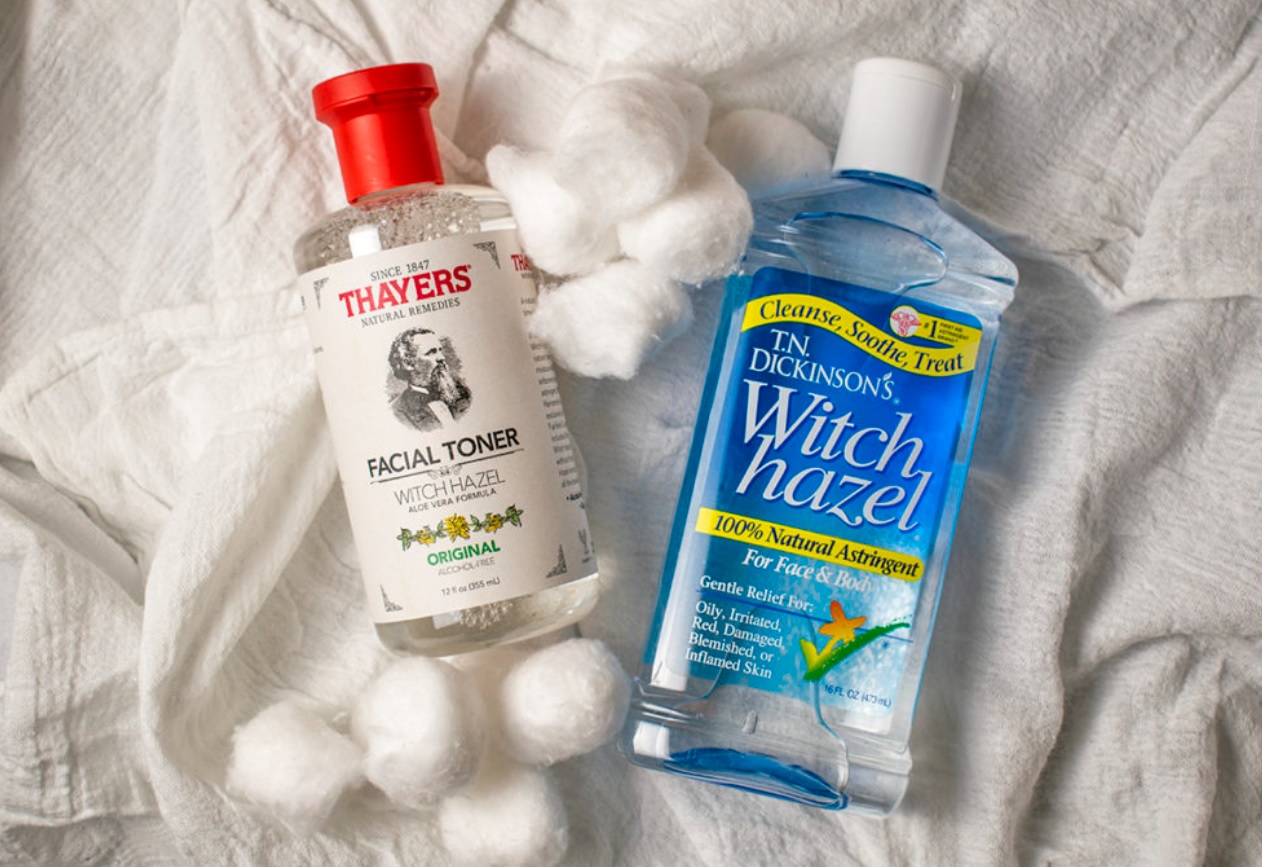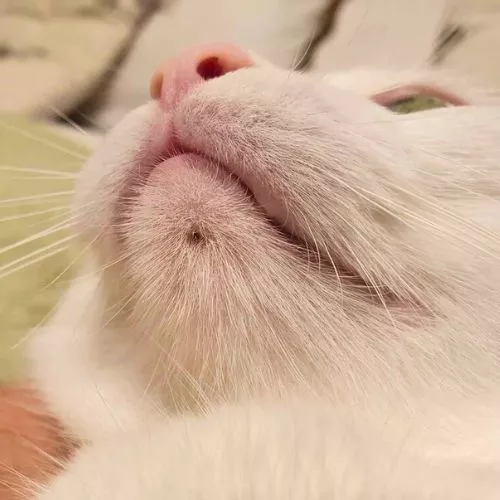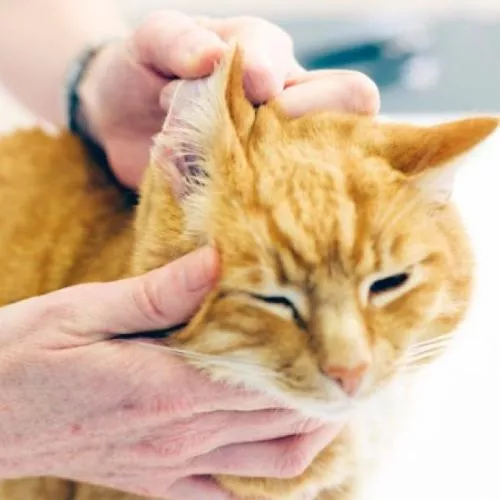Adopting a cat, we instantly sign up to safeguard its health and well-being. Often, we’re inclined to use natural remedies, such as Witch Hazel, known for its myriad benefits for humans. But, is it safe for our feline companions?

This article aims to explore the effects of Witch Hazel on cats, delving into veterinary perspectives and scientific evidence. It’s paramount to ensure our choices aren’t inadvertently putting our pets at risk. Read on as we unravel the truth.
🐾 Is witch hazel safe for cats?
Witch hazel, while a natural astringent with numerous benefits for humans, is generally not recommended for use on cats. This is due to the fact that cats have more sensitive skin than humans and dogs, and the application of witch hazel could cause irritation.
Aside from topical problems, there is a risk of oral exposure if a cat licks itself post-application, and ingestion of witch hazel could potentially lead to gastrointestinal upset. Therefore, despite witch hazel being non-toxic in small quantities for humans and dogs, its use for cats is best avoided unless under the direct supervision of a vet due to the unique sensitivity of feline skin.
🐾 Potential Effects of Witch Hazel on Cats

Topical Implications of Witch Hazel on Cat’s Skin
In humans, witch hazel, a natural plant-based astringent, is used for a variety of skin conditions, including acne, inflammation, and irritation. It contains tannins that help reduce swelling and fight off bacteria, proving beneficial for human skin.
However, cats have a different and more sensitive skin pH balance. Their skin is less resistant to external substances, including the tannins found in witch hazel.
When applied topically, Witch Hazel can potentially cause dryness, irritation, and discomfort instead of providing any healing benefits. It is crucial to steer clear from using products made for human skin on our feline friends, as these could lead to unnecessary and harmful skin reactions.
Risks of Ingestion
In addition to skin irritation, another risk associated with using witch hazel on cats is accidental ingestion. Cats, with their grooming habits, are likely to lick off any foreign substance applied to their bodies, including witch hazel.
Upon ingestion, witch hazel can irritate the cat’s gastrointestinal tract, leading to vomiting or diarrhea. In severe cases, it may even cause tremors, seizures, or other neurological issues. As such, any product that runs the risk of topical application leading to oral exposure should be used with caution.
🐾 Safe Alternatives to Witch Hazel for Cats

Natural Remedies Safe for Feline Use
Several natural remedies can be safely used on cats for a variety of purposes, from wound care to flea control. For skin inflammation or irritation, aloe vera is a common, natural choice. Aloe, specifically the gel inside the leaves, can soothe and heal the skin. However, ensure to use a pure, aloe vera gel as the outer leaves of the plant can be toxic to cats.
For flea control, a half water and half apple cider vinegar solution can be used. While not as potent as commercial products, it can help deter fleas. Also, remember to check with your veterinarian before using any natural solution to avert possible side effects.
Approved Commercial Products for Similar Uses
When it comes to safe alternatives, various commercial products are created explicitly with cat sensitivity in mind. For skin issues like acne and inflammation, there’s a range of feline-friendly topical creams and sprays. Corticosteroid creams, for example, can be used for specific skin conditions.
Flea and tick treatments also come in a variety of forms, such as spot-on treatments, pills, and collars. These are tested and proven safe for feline use. Always ensure to consult your vet before using any over the counter product.
🐾 Cats’ Unique Sensitivity: A Biological Perspective
The epidermis, the outermost layer of skin that serves as a protective barrier, varies vastly among different species. For instance, the human epidermis is ten times thicker than a cat’s skin, and, in comparison, a dog’s skin also remains relatively thicker.

Similarly, the pH of skin varies among animals. The cat’s skin pH is neutral (around 7.5) or slightly alkaline. Dogs have almost neutral skin (around 7.0), while humans have a slightly acidic skin pH (between 5.4 and 5.9). This difference in pH can greatly impact how various substances interact with and impact the skin.
Why Certain Substances can Be Harmful to Cats?
Cats metabolize substances differently than dogs or humans due to differing liver enzymes. A significant example of this is how cats handle medicine; they lack the enzyme glucuronyl transferase which means they can’t effectively metabolize and remove certain drugs from their system.
When applied topically to cats, certain substances, including essential oils and certain astringents like witch hazel, can cause harm. While tolerated by dogs and humans, these can cause severe skin irritation or, if licked off and ingested, internal harm in cats.
The thinner skin, unique skin pH, and a distinct metabolic system of cats underline the sensitivity of these pets and demand a cautious approach when considering applying any topical substances.
Also read: Can Cats Eat Almond Butter? | Can Cats Have Popcorn?
🐾 frequently asked questions (FAQs)
While witch hazel has shown some effectiveness in treating skin conditions in humans, it is usually not recommended for cats. Some cats might have a varying reaction to witch hazel and it can potentially cause further irritation to their skin, especially if they are sensitive or allergic to it. Always consult with your vet before using any human-grade remedies on your cats.
Witch hazel should be used with caution on a cat’s ears. It can sometimes cause irritation or an allergic reaction, particularly for cats with sensitive skin. Always dilute it with a carrier oil and use sparingly. Furthermore, it’s not a treatment for ear infections or mite infestations; they require veterinary intervention. It is essential to consult a veterinarian prior to using any substance on your cat.
A Cat’s ear infection should ideally be treated under the guidance of a veterinarian. Depending on the underlying cause, your vet might prescribe oral medication or ear drops. To help soothe your cat’s discomfort, ensure the outer area of the ear is clean and free of any debris. Avoid home remedies like olive oil which can worsen the infection. Maintain a stress-free environment for your cat and avoid loud noises which can induce pain.
Conclusion:
Is witch hazel safe for cats? The question remains a controversial topic. While it may offer some health benefits, it’s crucial to note that cats have different reactivity and sensitivity levels than humans. Misuse of witch hazel may lead to adverse reactions or complications, including skin irritation and allergic reactions.
Consequently, always consult with a professional vet before integrating witch hazel or any other human grade products into your cat’s health regimen. Pet owners should always prioritize professional veterinary advice to ensure the wellbeing of their feline companions.
